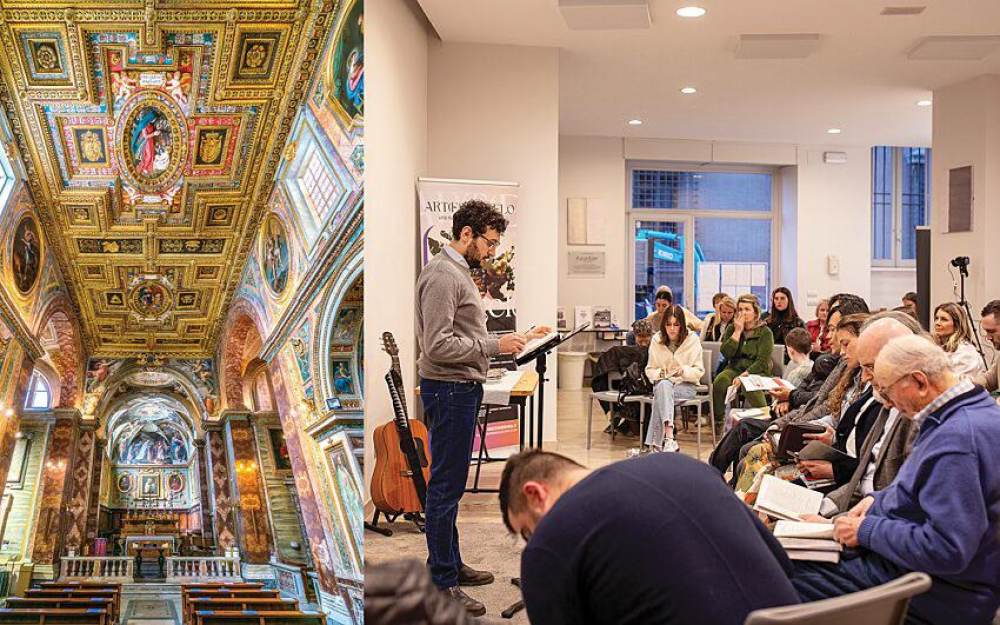Evangelical church in Rome refused tax exemption, ECtHR dismisses case

As reported on June 20, the Supreme Court of Italy has ruled between Breccia di Roma, an evangelical church, and the Italian tax authorities. The authorities had refused to give the Breccia di Roma Church tax-exemption under Italian law, available to all religious places of worship, on the grounds that its premises lacked the “intrinsic characteristics” of a religious building. The Supreme Court backed the decision by the tax authorities. An appeal at the European Court of Human Rights has been dismissed. The case raises massive concerns about discrimination of evangelical churches in Italy.
The church purchased a store in 2016 and converted it to their place of worship, after necessary approvals. Yet tax authorities claimed that the unadorned place did not resemble a church. The church went to court and won in 2016, as well as in the appeal case in 2023. The authorities then appealed to the Supreme Court, which overruled the previous reasoning and decided in June 2024 in favour of the tax authorities. It held that the premises did not contain any signs of a religious building and could not be recognised as a place of worship for tax purposes.
The statement of appeal by the tax authorities says that "the property, although used as a place of worship, does not have the intrinsic characteristics of real estate units traditionally used for the public exercise of worship".
The church's pastor Leonardo De Chirico underlined that the case is "not a bureaucratic issue" but "a religious freedom issue." He also said that it was important to note "that this issue extends beyond the walls of Rome’s Breccia. The regulations created to hinder the opening of new places of worship make it increasingly difficult to both open new places and maintain existing ones."
While this is only one instance, it could potentially affect other churches in Italy. The UN's official interpretation of religious freedom according to Article 18 of the ICCPR, issued by the UN Human Rights Committee in its General Comment 22, states that "the concept of worship extends to ritual and ceremonial acts giving direct expression to belief, as well as various practices integral to such acts, including the building of places of worship, the use of ritual formulae and objects, the display of symbols, and the observance of holidays and days of rest." The Committee furthermore deliberately adopted a broad interpretation of religious manifestations and practices instead of laying down a set of protected manifestation, arguing that the contents of a religion should be defined by the worshippers themselves. While this approach obviously needs reasonable bounds, it makes clear that it is religious communities, not state authorities, which should judge religious manifestations, including the setup of their places of worship.
Breccia di Roma explained that the design and decor of their church was, indeed, purposeful. "Church spaces speak of the church that occupies them. Before words, it is the environment one enters that communicates something. … We decided to furnish the space in a simple and functional way so that it could be multipurpose and a blessing for the Roman and Italian evangelical people in different ways."
Pastor De Chirico, furthermore, insisted: "Despite the unjust decision of the Italian Supreme Court, this place is a place of worship where the people of God gather in the heart of the nation, in the heart of the capital of the Roman Catholic institution, to listen to the word of God proclaimed and proclaim the goodness of Jesus Christ."
The church must now pay taxes of 6,000 euros a year, and arrears of 50.000 euros.
Update, 24 March 2025
Represented by ADF International, the church had filed an appeal at the European Court of Human Rights, which has rejected the case.
Sources: TGC, World, Evangelical Focus Europe, Info Chretienne, locicommunes.it, Reformatorisch Dagblad, ADF International
Image: Facebook
Video: YouTube